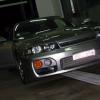Help With Wierd Distortion
Announcements
-
Similar Content
-
Latest Posts
-
I would like to keep it around 15k but if I need more to make it reliable and not have to worry about the car breaking I can go more. It's my project car so I'm just trying g to figure out what needs to be in it i know basic things like turbo cams injectors I'm just unsure of the size and the specifics so I'm spending alot of time on Google and its mostly rb25 and rb26 not alot on neo
-
By pacman_1219 · Posted
There's a pdf on this forum for the wiring. When I did my manual swap I followed this wiring section on the pdf and the auto speedo works as it should. -
The drop shipping isn't the issue I believe, the issue is that a US business is getting stuff manufactured in China, and then selling them, this gets reported in their taxation, thus, I believe, the US government still wants its pound of flesh Whether it is the 10% tariff, which I'm happy to pay to play with, or the 115%, which would be a deal breaker Hopefully this gets sorted sooner rather than later as impatient Mark is impatient...LOL
-







Recommended Posts
Create an account or sign in to comment
You need to be a member in order to leave a comment
Create an account
Sign up for a new account in our community. It's easy!
Register a new accountSign in
Already have an account? Sign in here.
Sign In Now